Share the page
Senegal: Women Entrepreneurs in the Spotlight
Published on
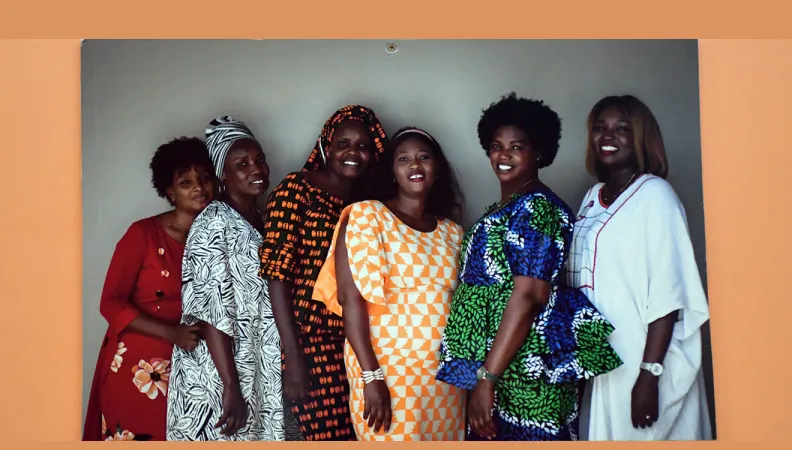
In Senegal, 82% of the entrepreneurial base is made up of individual businesses. Fragile and informal, they often need room to grow in order to become viable. Financial support programs such as the Pavie Project for supporting and promoting entrepreneurial initiatives help these businesses to gain formal status and create jobs, while paying special attention to initiatives that empower women.
Pavie intro
In Dakar and elsewhere in Senegal, businesses are trying to recover from the impact of Covid-19. Before the health crisis, the private sector's contribution to growth was already limited, with less than 30 percent of GDP generated by micro, small, and medium enterprises (MSMEs). These account for 90% of the private economic base.
As part of its development strategy, the Emerging Senegal Plan (PSE, 2014-2023), the Senegalese government created the General Delegation for Rapid Entrepreneurship (DER) in 2017. With an annual budget of 30 billion CFA francs (€46 million), the DER is designed to promote entrepreneurship and employment for women and youth by combining financial support and assistance services.
To achieve the objectives of job creation and MSMEs, the team has set up the Project for supporting and promoting entrepreneurial initiatives (Pavie), financed by the government, AFD, and the African Development Bank (ADB).
The objective is to contribute to the enhancement of entrepreneurial initiatives, to the development and consolidation of businesses led by women and youth through the structuring of agricultural, industrial, and artisanal value chains, providing sustainable, decent jobs. SMEs in other priority sectors are also being supported.
"Thanks to Pavie, women succeed in finding a job that helps them manage their lives.”
- Isseu Diop Sakho, founder of the start-up Mburu
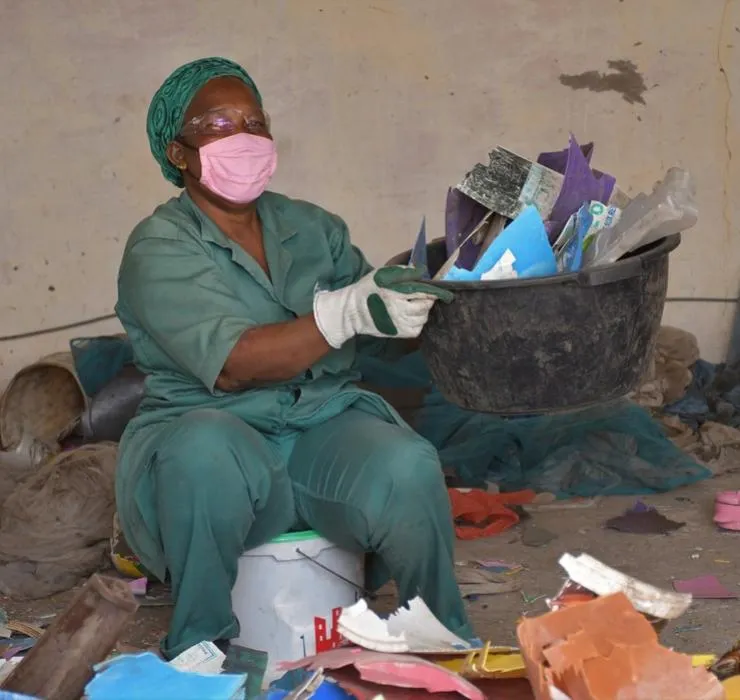
Dicko Sy, Digital Agricultural Guru
"I didn't want to be just an employee, I wanted to make an impact”. The least we can say is that, for the past six years, the co-founder of Dictaf Corporation, Dicko Sy, has been successful in her quest to popularize precision agriculture: "Our role is to share new agricultural techniques and practices to improve farmers' productivity. Dictaf's core business is training and capacity building," she said.
Success has come quickly, despite connectivity challenges. The application created by Dictaf Corp, SOS Agri, works in offline mode and hosts 10,000 farmers. And since Dicko is not a fan of imported solutions, the application's speech system offers two local languages.
"Miss Drone", as she is known, has also provided a simple solution for supervising large areas of land: drone surveillance. More comprehensive, more time and energy efficient, this method allows for more targeted data via integrated sensors. With this technology, farmers can also diagnose plant diseases earlier. This is why SOS Agri is called upon, to avoid pre-harvest losses. The young woman is thus positioned as one of the Senegalese leaders in precision agriculture.
Dicko Sy, who is part of the first graduating class of the agricultural engineering program at the Gaston Berger University of Saint-Louis, set himself the goal of changing "even 1% of the way agriculture is done" in Senegal. The gamble paid off: its application has already been deployed in Guinea, while awaiting an upcoming expansion in East African countries.
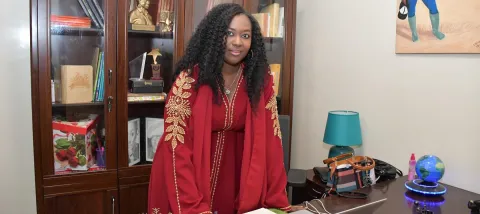
Amy Mbengue, Plastic Recycling Advocate
Amy had the courage to be one of the pioneers of plastic recycling in Dakar. Her company, Ecobag Recycling, processes one to four tons of used items daily, which are recycled to a fate better than a landfill or incineration, and give life to many new utilitarian objects such as chairs. "When you see the amount of waste that is not taken care of in this country, you think there is something that can be done," she said.
An unwavering determination helped her overcome the prejudices and apprehensions of the firm in charge of the feasibility study for her project. The niche remained unexplored until then. "It's an industry that has a certain connotation," Amy conceded. But with the change in eating habits, plastic is used more and more and Ecobag was born.
At her processing plant located in Keur Massar, in the suburbs of Dakar, the fifteen or so women who make up the majority of Amy's team are hard at work, between a crushing machine and huge bags of granulates. Amy now sits atop the Dakar plastic recycling empire. Already rich in academic training in economics, project management and marketing, she was able to reinforce her skills thanks to the support of Pavie.
The program helped her to better structure her business, acquire new equipment, consolidate existing jobs and conquer new markets. "What started out as an idea, has become a passion in its own right,” said Amy. “I'm proud to be a part of creating jobs, especially green jobs in my country.”
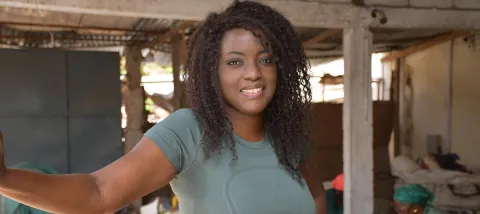
Isseu Diop Sakho, The Female Breadwinner
The Mburu platform ("bread" in Wolof, the main language of Senegal) has a remarkable feature: the production line is 100% female. Mburu is a start-up specializing in producing and selling breads, pastries, and cakes using local foods (including millet, corn, sorghum and seasonal fruits).
From ordering the products to their sale and storage, the whole process is digital, and handled exclusively by about 50 women. Isseu Diop Sakho, the founder of this start-up, chose this option to consolidate the range of economic opportunities for women in her home town of Mbour. "Beyond the effects of a trend, there is a real economic need: women help support their families.” Isseu said. “And they succeed in finding a job that helps them manage their lives."
The opening of a new location in Dakar, in the residential area of Point E, has expanded the network to 25 outlets. This success is largely due to the clear vision of this mother of two who holds a doctorate in finance. "The most difficult thing about such a project is the illiteracy barrier, both for the production and sales teams. We were able to get around this barrier with simple digital solutions and structuring our business activities". A difficulty that she was able to turn into an opportunity to the delight of the ladies. And consumers.
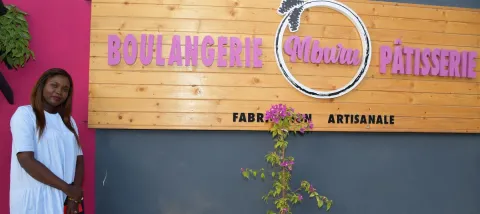
Pavie, working to level (up) the playing field
The alliance of forces between AFD and the Senegalese government is trying to make progress in access to financing for micro, small, and medium-sized enterprises (MSMEs). The Program for supporting and promoting entrepreneurial initiatives (Pavie) has two objectives: promoting initiatives led by women and youth, especially in agriculture and hand-crafted products, and supporting SMEs in other priority sectors. With a budget of €113 million, the first phase (Pavie I) is spread over three years (2019-2022) and focuses on two components: assisting MSMEs and building the capacity of the DER, the project's delegated project manager.
After a challenging pandemic phase, the grants provided as part of Pavie 1 during the summer of 2021 have brought relief to businesses, as Isseu Diop Sakho, founder of the start-up Mburu (pictured right) confirmed: "This financial support from AFD and DER helped us to complete the work on our Point E outlet. It was very expensive: more than 120 million CFA francs (€180,000), just for the building. The equipment is also very expensive. The financing has made it possible to finalize a large part of the finishing touches in order to start commercial operations.”
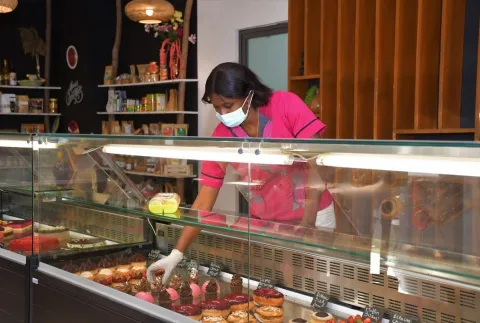
Expanding the field of expertise
The three recipients of this funding won’t rest on their laurels. They are thinking big and are each considering expanding their activities into a larger, more inspiring project. Mburu has already begun to expand its national network. Dictaf Corp. wants to make its pan-African vision a reality and Ecobag Recycling wants to move from a waste recovery unit to a full-fledged industrial unit specializing in 100% recycled products. So that no one is unaware of the scope of female leadership.
-
€113 million Total amount of the Pavie program
-
3 Years Duration of Project Phase 1
-
1,121 Recipients funded
